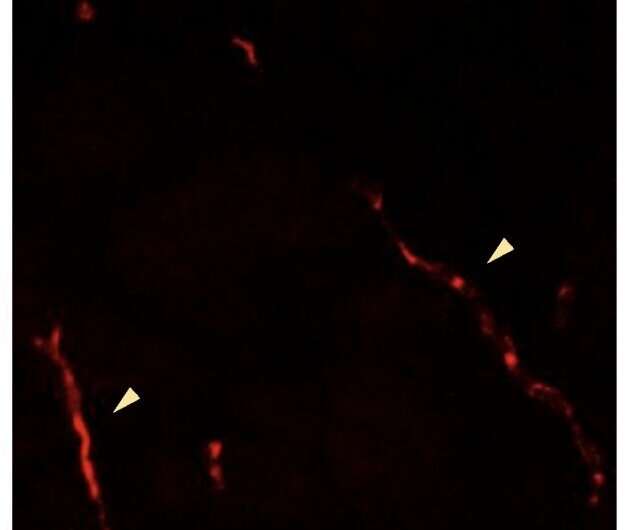This article has been reviewed according to Science X's editorial process and policies. Editors have highlighted the following attributes while ensuring the content's credibility:
fact-checked
peer-reviewed publication
proofread
COVID-19 brain fog and the role of Tau proteins

A study published in PNAS Nexus identifies a molecule that may be behind cognitive symptoms, including "brain fog," experienced by those infected by the SARS-CoV-2 virus.
Studies have shown that COVID-19 infection can worsen Alzheimer's disease in patients with the condition. COVID-19 infection may also make people more prone to develop Alzheimer's disease than people who did not contract COVID-19. Cristina Di Primio and colleagues investigated, in human neuroblastoma cell cultures as well as in mice, the ability of SARS-CoV-2 infection to induce a biochemical endpoint related to Alzheimer's disease.
The authors found that when the SARS-CoV-2 virus infects cultured neuronal cells or the mouse brain, the virus interacts with the microtubule-associated protein known as Tau—a linear molecule known to tangle and clump in neurons in people with Alzheimer's disease. Specifically, upon infection by the virus, Tau undergoes hyperphosphorylation at pathological epitopes—binding locations for antibodies—in a similar fashion as the protein does in Alzheimer's patients.
This hyperphosphorylation makes Tau more likely to form aggregates. The authors also detected a significant increase of Tau in the insoluble fraction of infected cells, a sign of pathological alterations to the protein.
It is still not clear whether these changes are directly caused by the virus or are part of a cellular defense response that functions to keep the virus out of the cellular areas where the virus could replicate. More research is required to develop the findings before the work will become clinically relevant, according to the authors.
More information: Cristina Di Primio et al, Severe acute respiratory syndrome coronavirus 2 infection leads to Tau pathological signature in neurons, PNAS Nexus (2023). DOI: 10.1093/pnasnexus/pgad282




















